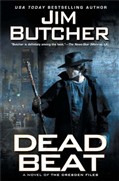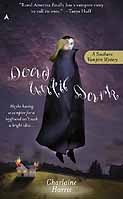Imagine that you have to break someone’s arm.
Right or Left, doesn’t matter. The point is that you have to break it, because if you don’t…well that doesn’t matter either. Let’s just say that bad things will happen if you don’t.
Now, my question goes like this: do you break the arm quickly–snap, whoops, sorry, let me help you with that improvised splint–or do you drag the whole business out for a good eight minutes, every now and then increasing the pressure in the tiniest of increments, until the pain becomes pink and green and hot and cold and altogether howlingly unbearable?
Well exactly. Of course. The right thing to do, the only thing to do, is to get it over with as quickly as possible. Break the arm, ply the brandy, be a good citizen. There can be no other answer.
Unless.
Unless unless unless. What if you were to hate the person on the other end of the arm? I mean really, really hate them.
This was a thing I now had to consider.
I say now, meaning then, meaning the moment I am describing; the moment fractionally, oh so bloody fractionally, before my wrist reached the back of my neck and my left humerus broke into at least two, very possibly more, floppily joined-together pieces.
So begins Hugh Laurie’s The Gun Seller. Of course, Laurie is best known to the world as Blackadder’s Georges (the nasty German Prince Ludwig in Blackadder II, the spoiled Prince George in Blackadder III, the bumbling Lt. the Honorable George Colhurst St. Barleigh in Blackadder Goes Forth, etc.); Bertie Wooster; the tall crook (Jasper) in 101 Dalmatians; Stuart Little’s Dad; The Gentleman on the Plane who has to listen to Rachel blather on; and Dr. Gregory House (among many, many other roles). Okay, so he can act–but can he write? That very question kept me from buying the book years ago when I first saw it. Finally took the plunge thanks to the local library. The answer is: Yes. Maybe he’s better at the latter. In fact, once House, M.D. finishes it’s 10th and final year, maybe he should take a break from acting and write more–just to appease me.
This is one entertaining book. Very funny. And what else would you expect of a global-ranging book about terrorism, the weapons industry, and the role of government; involving the CIA, the British Ministry of Defense, a terror cell, multinational corporations, conspiracy nuts, and, naturally, an art gallery.  Stumbling through it all is Thomas Lang, a former Scots Guards officer turned general ne’er do well, trying not to become an international terrorist.
Stumbling through it all is Thomas Lang, a former Scots Guards officer turned general ne’er do well, trying not to become an international terrorist.
I remember going through the Director’s Commentary to The Whole Nine Yards, and he said something like how they could’ve easily used the same script (only changing a couple of words) and made it into a very noir movie instead of the comedy it was–changing the lighting, the score, the cuts…little things. This book is very much the same. It would’ve been very easy for this to be a Robert Ludlum clone–the plot, most of the characters (if not all), the settings, etc. We’ve seen them all a million times before. But the way Laurie narrates the events prevents that from happening. Instead, it becomes charming, droll, and occasionally, laugh-out-loud funny.
He does this fairly seamlessly. In lesser hands (say, Dan Brown’s), this would be jarring, jumping back and forth between comedy and suspense. But I don’t think Laurie hit an off-note once. In a matter of pages you read a very graphic torture scene, a line like: “There’s an undeniable pleasure in stepping into an open-top sports car driven by a beautiful woman. It feels like you’re climbing into a metaphor”; a description of a complicated espionage set-up, and then a paragraph like:
Somewhere a clock ticked. Quite fast. Too fast, it seemed to me, to be counting seconds. But then this was an American building, and maybe Americans had decided that seconds were just too [bleep] slow, and how’s about a clock that can do a minute in twenty seconds?
That’s not to say you’re laughing at a grisly murder or anything–in fact, violence is depicted in such a way that it highlights the depravity, the bleakness, the pointlessness of it all. It’s the people, the settings, the non-life ending events that are treated with a light touch.
Ricky felt a lot worse about himself at this moment; most probably because he’d managed to get himself into one of those situations where you’re naked in the cellar of a strange building, in a strange country, with strangers staring at you, some of whom have obviously been hurting you for awhile, and others of whom are just waiting to take their turn. Flickering across the back of Ricky’s mind, I knew, were images from a thousand films, in which the hero, trussed-up in the same predicament, throws back his head with an insolent sneer and tells his tormentors to go screw themselves. And Ricky had sat in the dark, along with millions of other teenage boys, and duly absorbed the lesson that this is how men are supposed to behave in adversity. They endure, first of all; then they avenge.
…Ricky had neglected to notice the important advantages that these celluloid gods had over him. In fact, there really is only one advantage, but it is a very important one. The advantage is that films aren’t real. Honestly. They’re not.
In real life, and I’m sorry if I’m shattering some deeply cherished illusions here, men in Ricky’s situation don’t’ tell anyone to go and screw themselves. They don’t sneer insolently they don’t spit in anyone’s eye, and they certainly, definitely, categorically don’t free themselves in a single bound. What they actually do is stand stock still, and shiver, and cry, and beg, literally beg, for their mother. Their nose runs, their legs shake, and they whimper. That is what men, all men, are like, and that is what real life is like.
Sorry, but there it is.
Thomas Lang begins the novel seemingly care-free. A man unattached from friends, job, love…anything but himself. He seemingly as a moral core, but runs from the question, “Are you a good man?” As the novel develops, and the stakes get higher and whatnot. The ironic detachment transforms into commitment to people, to right and wrong. While there are “trigger points” to this transformation, where it takes a significant leap forward–the gradualness to Lang’s growth belies Laurie’s experience in fiction.
The Gun Seller was published in ’96, and thanks to the events of the past few years, the views on terrorism espoused by Lang, the MOD, the CIA, etc. are a bit dated. And that’s really the worst thing I can say.
Grade: A. Bonus points because one of his chapter’s epigraphs is from John Owen, my favorite puritan.



 Here’s the set-up, Harry Dresden’s a PI. Loner-type. Has a pal in the police department that feeds him some work. But he free-lances as well. Loose collection of friends who can help him out–Bob, who seems to have background on everything; his half-brother who’s good for added muscle and to bounce ideas off of; Butters in the morgue; and so on. Typical hard-boiled PI novel stuff.
Here’s the set-up, Harry Dresden’s a PI. Loner-type. Has a pal in the police department that feeds him some work. But he free-lances as well. Loose collection of friends who can help him out–Bob, who seems to have background on everything; his half-brother who’s good for added muscle and to bounce ideas off of; Butters in the morgue; and so on. Typical hard-boiled PI novel stuff. Like I said, typical. She lives in a small Louisiana town filled with antebellum homes and all the people she’s known her entire life.
Like I said, typical. She lives in a small Louisiana town filled with antebellum homes and all the people she’s known her entire life.  Stumbling through it all is Thomas Lang, a former Scots Guards officer turned general ne’er do well, trying not to become an international terrorist.
Stumbling through it all is Thomas Lang, a former Scots Guards officer turned general ne’er do well, trying not to become an international terrorist.  But that’s not to say the book isn’t good, it is. But it doesn’t feel as fresh–that’s the nature of sequels. When I finished the book, I uttered a Nero Wolfean “Satisfactory.”
But that’s not to say the book isn’t good, it is. But it doesn’t feel as fresh–that’s the nature of sequels. When I finished the book, I uttered a Nero Wolfean “Satisfactory.”